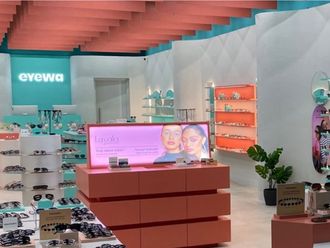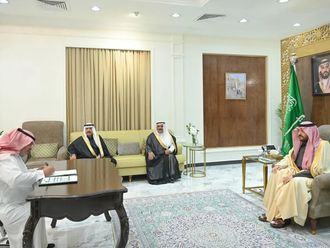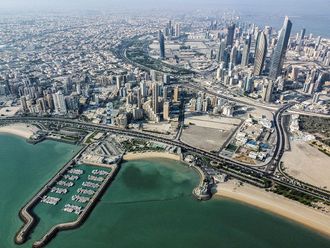
Cairo: With a passion for vintage cars, a Saudi man has established himself in overhauling old vehicles and making them roadworthy again.
“It started as a hobby more than 30 years ago,” Meflah Al Enazi said as a row of vintage cars appeared behind him. “I acquired one car after the other over time,” he told Saudi TV Al Ekhbariya.
Initiating his journey as an amateur, he recalled that he had sold his first vintage car for a large sum of money because it was a rarity. He has since worked on overhauling old cars.
“With my experience in mechanics, electricity and painting, I’ve made a great effort to bring each car back to its original condition.”
Meflah showed a pickup truck that he said had got from a Saudi more than 25 years ago.
“This vehicle was buried in sand. I hauled it up. It was dilapidated. I rebuilt a bit by bit,” he remembered.
Saudi Arabia boasts a thriving car market, especially after the kingdom allowed women in 2018 to drive for the first time in its history, ending a decades-old ban on female driving. The historic step has boosted the car market’s growth.
Saudi Arabia imported cars and their accessories worth SR100 billion last year.
Japan topped the value list of the car suppliers, exporting last year to the kingdom cars valued at SR20.6 billion followed by China with exports worth SR16.8 billion and the US with SR11.1 billion, according to Al Ekhbariya.
Other main suppliers included South Korea with auto cars valued at SR7.6 billion, followed by Thailand with SR7.5 billion and India with SR6.8 billion.
In May, a Saudi customs official said the country had imported around 160,000 cars over the past couple of years. They included 93,199 cars last year and 66,870 cars the previous year, Hamud Al Harbi, a spokesman for the Saudi Zakat, Tax and Customs Authority said.
Car sales in Saudi Arabia in 2023 reached around 730,000, of which 30% were bought by women, according to market observers.











